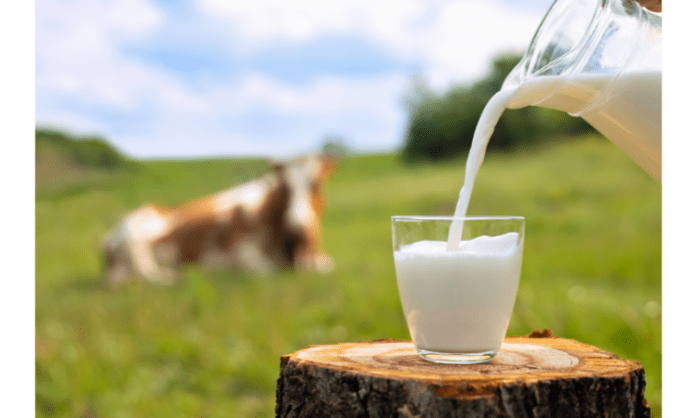
Humans have been drinking milk for thousands of years. Milk was first domesticated by ancient humans who found that they could preserve it and turn it into butter, cheese, and yogurt. Milk has been a staple food in many human diets since then, but there is some debate over whether or not we still need to consume it today. In this article, we’ll discuss the benefits and drawbacks of consuming cow’s milk versus plant-based alternatives like almond milk or soy milk. Do we need dairy in our diet? We’ll look at some of the top why humans should not drink cows’ milk in favor of something else.
Why is milk necessary for human beings?
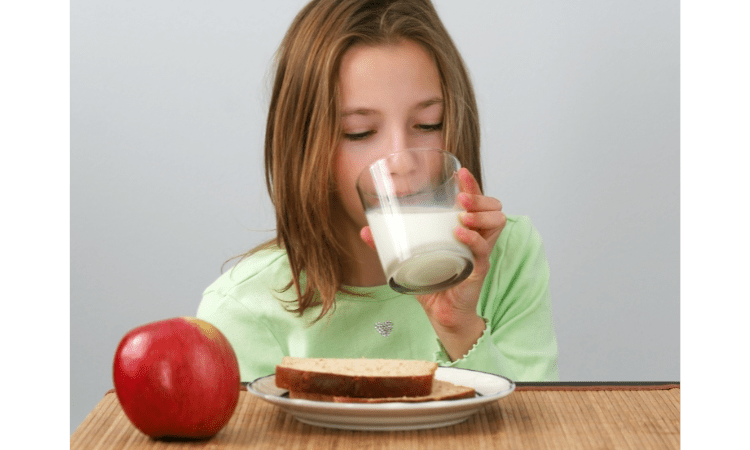
You might have heard the saying “milk is nature’s perfect food,” but what does that really mean? Milk is a complete food, meaning it contains all of the nutrients needed for your body to function properly. These nutrients include proteins and carbohydrates, vitamins such as A and D, minerals such as calcium and phosphorous, essential fatty acids that keep our skin healthy and help us metabolize fat (also known as omega fats), potassium which helps with blood pressure regulation and muscle contraction.
Milk also contains lactose which is broken down by an enzyme called lactase into glucose plus galactose. In other words: milk sugar! This sugar provides energy for your body cells to use when digesting this particular type of carbohydrate so if you’re lactose intolerant then there will be no free-floating glucose or galactose available after consuming milk products due to their inability to be broken down properly by enzymes present in your digestive tract (lactase being absent).
Can we live without milk?
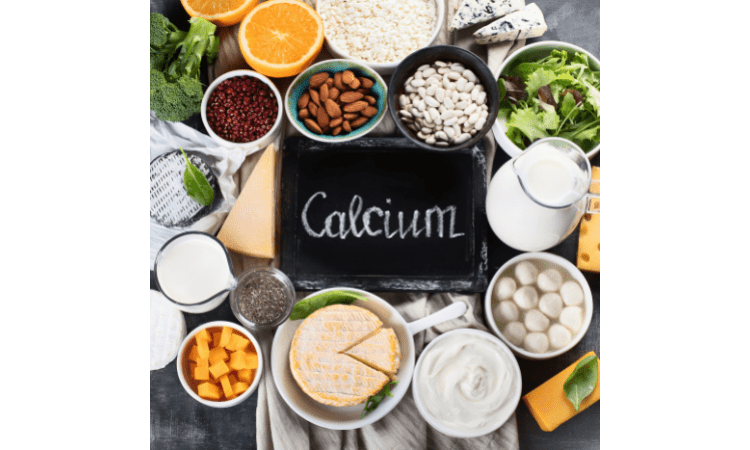
The answer is no. It is true that humans have evolved to be able to thrive on a wide range of foods and they can survive without milk, but they cannot live healthfully or optimally.
Milk provides an array of nutrients that are essential for proper growth and development in children, teenagers, adults and seniors alike. These nutrients include protein (essential amino acids), calcium (bones), vitamin D (healthy teeth), potassium (muscles), phosphorus (cellular energy production) and riboflavin (red blood cells). Milk also contains other vitamins like A or C as well as minerals such as iron or zinc which are important for many bodily functions including immunity, brain health and even reproduction! In addition to these specific nutrients there are also healthy fats found in milk which help us absorb the fat soluble vitamins A D E K K L which aid our immune system function too.
What are the advantages of milk?
Milk is a delicious and nutritious drink. But do humans actually need milk? It’s hard to say, but here are some facts about milk that might change your mind:
- Milk is rich in calcium, which is essential for strong bones. And if you don’t drink milk, you can take calcium supplements to make up for this deficiency.
- Milk provides vitamin D—another substance that many Americans are deficient in—and without sufficient amounts of vitamin D, people can become more susceptible to disease and injury.
- Protein helps build muscle mass, so drinking lots of milk could help athletes gain strength faster than their non-milk-drinking counterparts! It also aids in healing injuries sustained during exercise or competition by speeding up tissue repair time through its anti-inflammatory properties (yes—that means your muscles won’t hurt as much after vigorous exercise).
- Iodine helps regulate hormone production; riboflavin supports normal energy metabolism; both nutrients can only be found in significant quantities within dairy products like whole cow’s milk.
Also Read:- 6 Best Drinks to Have Everyday
Do we need dairy in our diet?
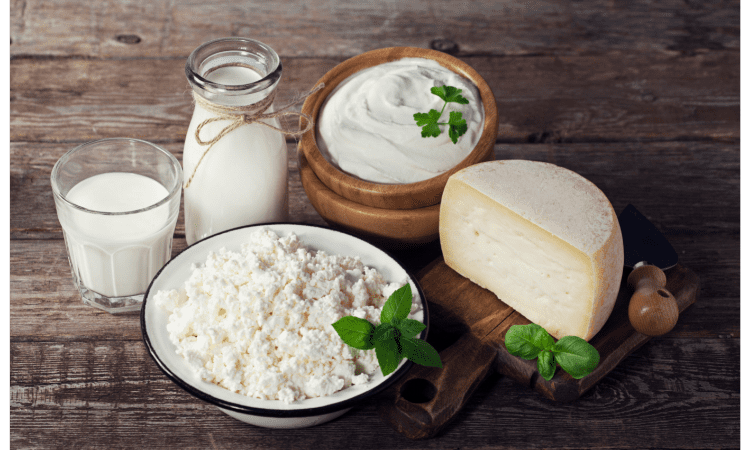
When it comes to milk, the answer is no, you do not need to consume dairy. While it’s true that people have been drinking milk for hundreds of thousands of years (and some would argue that we were designed by nature to digest and use it), there are plenty of other nutritious foods out there that can provide your body with calcium and other nutrients it needs. And if you’re lactose intolerant? can all humans digest milk? Well then, forget about milk altogether!
As for all those other “benefits” people claim about milk—well, they just aren’t backed up by science. For example:
- Drinking cow’s milk won’t make you grow taller or stronger; neither will consuming whey protein powder or eating yogurt made from cow’s milk (though these may be good sources of protein). There is no evidence that drinking cow’s milk makes any difference in terms of athletic performance at all—if anything, studies suggest that consuming whole foods like fruits and vegetables are better than isolated nutrients such as calcium (which a lot of people think only come from dairy products).
- It doesn’t help build strong bones either; this myth was debunked long ago when researchers found no correlation between osteoporosis risk factors such as age or race and total daily intake levels in adults over 50 years old living in New York City who drank at least one serving per day.
Milk “makes strong bones”
There are many reasons to drink milk. For one thing, it’s a good source of calcium and vitamin D—both necessary for healthy bones. And while some people may not like the taste of milk or have trouble digesting it, most people can digest cow’s milk without any problems. Many adults find that drinking a glass of low-fat (1%) or nonfat (skim) milk before bedtime helps reduce their risk for osteoporosis and other bone-related diseases. A half cup of 2% fat cottage cheese contains about as much calcium as an 8 oz glass of whole milk but has less than half the calories.
What are the disadvantages of milk?
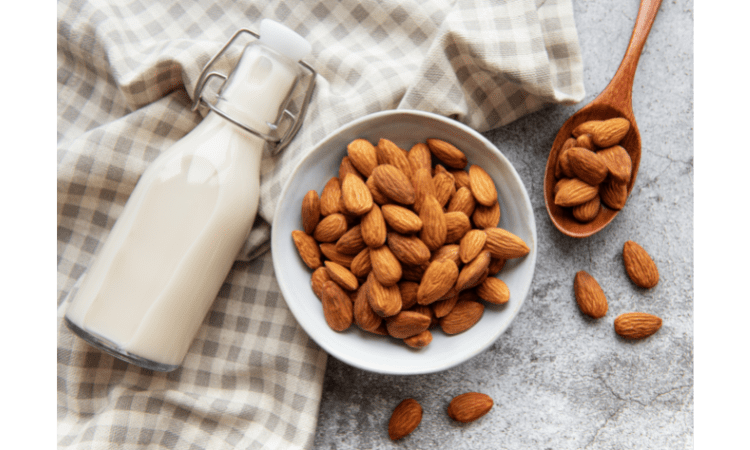
Milk is a common source of protein and calcium. But it’s also a high-calorie food that can cause acid reflux in sensitive people, as well as constipation in others. Some studies have even found that drinking milk may increase your risk of cancer or heart disease, especially when you’re an adult age 65 or older.
The American Academy of Pediatrics (AAP) recommends that children over 2 years old drink no more than 24 ounces (710 milliliters) per day, yet most children drink twice this amount! Adults aren’t any better: the AAP recommends no more than three cups per day for adults under age 50 who don’t exercise regularly; four cups for women over 50; five cups for men over 50 who don’t exercise regularly; six cups if you’re pregnant or breastfeeding; and eight cups if you’re active and under 18 years old.
Even though non-dairy alternatives such as almond milk are gaining popularity among vegans and lactose intolerant people alike, there are still many reasons why humans might need milk at all.
When should you not drink milk? Is milk bad for you according to scientific research?
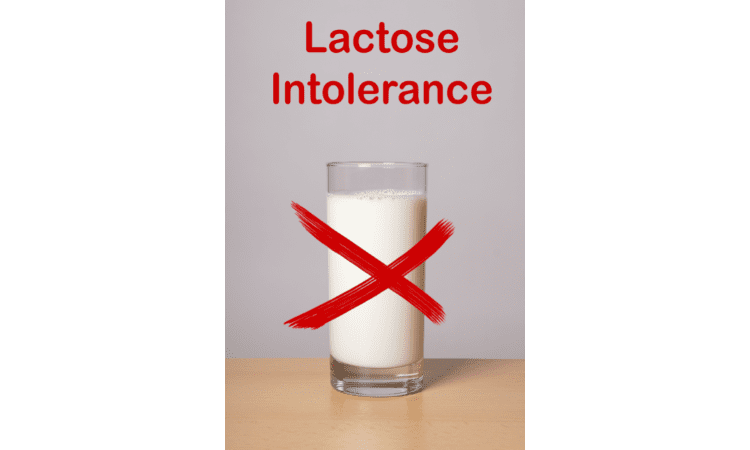
While most people can drink milk to their heart’s content, there are some cases in which it isn’t the best option. In these situations, you should either switch to an alternative dairy product or find an alternative source of calcium.
- If you have a severe allergy to lactose (the sugar found in milk), then drinking any amount of cow’s milk may be dangerous.
- If you’re lactose intolerant—that is, your body doesn’t produce enough lactase enzyme and so cannot digest the sugars found in cow’s milk—then any amount of cow’s milk will likely make your stomach feel worse than if you hadn’t drunk anything at all.
- Vegans avoid consuming products from animals for ethical reasons; so if someone doesn’t eat meat or other animal products for ethical reasons (or simply because they don’t like them), then they probably won’t want to consume cows’ milk either.
- Children under the age of 1 aren’t generally recommended to drink cow’s milk because they lack sufficient enzymes needed for proper digestion and absorption of nutrients from food sources like this one that contain high levels of nutrients such as iron or vitamin B12 (which is only present naturally within living creatures).
Is it natural for humans to drink cow milk? Can humans digest cow milk?

The answer to this question is a resounding “no.” Humans are the only mammals that drink milk from other animals. The natural food for human beings is mother’s milk, as all other mammals know instinctively. All other animals drink their own kind’s milk, except humans.
But because of our unique history, we have come to believe that cow’s milk is good for us and should be consumed at every meal. This belief has been perpetuated by many health authorities who say that drinking cow’s milk will improve our bone density and help prevent osteoporosis in later life (and even cancer). It may well do these things—but there are some drawbacks to consuming cow’s milk which you might want to consider before you start downing cartons of it every day.
Is milk a need or a want?

Milk is not a need for human beings. You can live without it, and you do not require milk in your diet. It is a want – something you might choose to include in your diet if you so desire, but certainly not something that you need to thrive.
This concept of “need” versus “want” is a highly subjective one and depends largely on cultural influences and personal preferences. For example, while many people consider bread or rice as necessities based on their own experiences eating those foods as children growing up in certain countries (such as India), there are others who would disagree with this characterization of either grain product as necessary because they have never had them before in their lives (for example, Americans). The same holds true with milk: some cultures rely heavily on dairy products for nutrition; others consume very little or none at all—and yet both groups seem just fine physically speaking.
Conclusion
Overall, milk is a great source of nutrients and has many benefits. However, it should not be the only source of calcium in your diet. There are other options that don’t come with all the problems associated with dairy products like allergies or lactose intolerance. If you are vegan or vegetarian and want to avoid animal products altogether, there are still ways to get enough calcium without drinking milk.
Do humans really need milk? The one word conclusive answer is – NO, according to the latest scientific research consumption of milk is not a must nutritional requirement for humans. In fact, all the nutrients derived from milk for optimal health can be received from alternate diets keeping milk products at bay.











